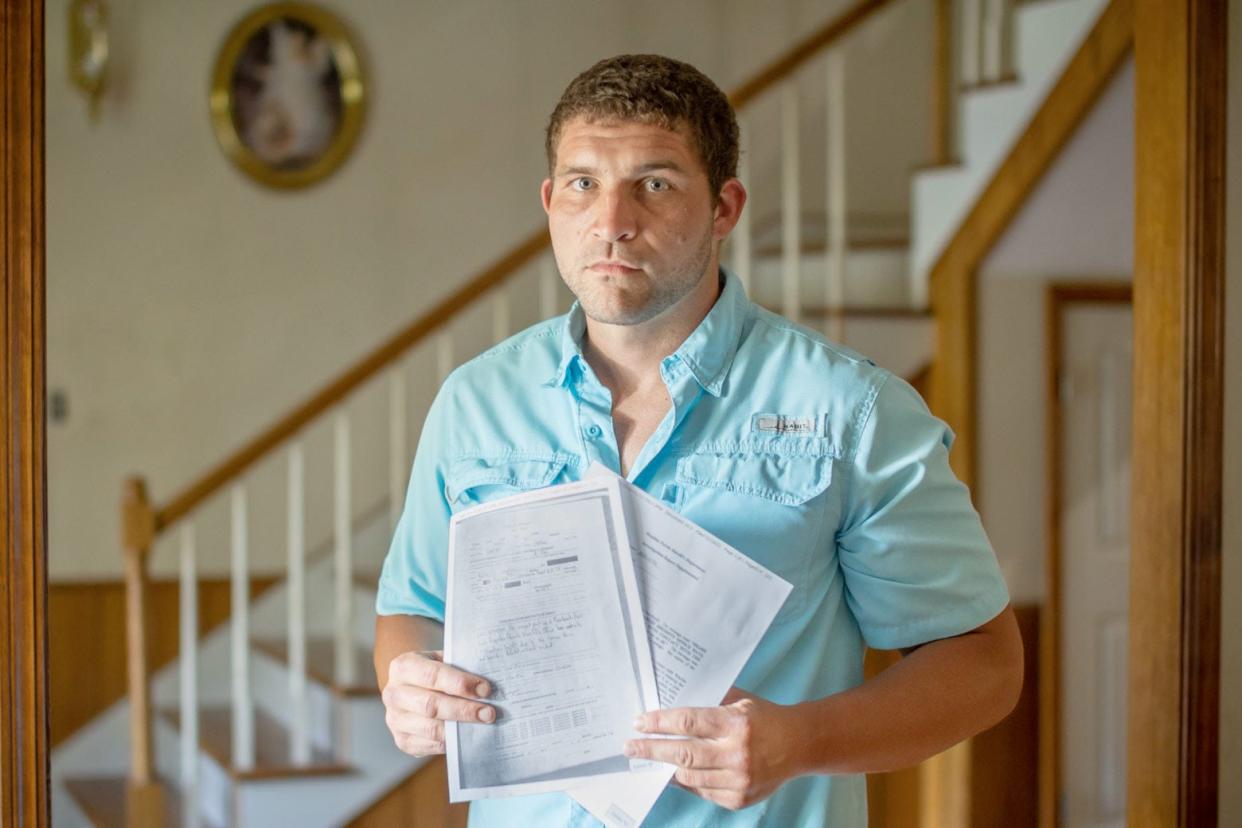In Surprise Ruling, Louisiana Cops Can Be Sued for Raiding Home of Man Who Joked About Pandemic on Facebook

Some jokes fall flat. But Louisiana resident Waylon Bailey got more than eye rolls when he logged on to Facebook and compared the COVID-19 pandemic with a zombie apocalypse on March 20, 2020, during the first month of lockdowns.
As many as a dozen deputies from the Rapides Parish Sheriff’s Office approached him with bulletproof vests on and weapons drawn while he worked in his garage in central Louisiana. Despite his assurances that he was only kidding—no zombies were coming to eat anyone’s brains—the officers ordered him to his knees and handcuffed him. Then they took him to jail without a warrant and booked him on suspicion of terrorism.
Talk about no sense of humor.
Few people even saw the social media post. And those who did recognized it as satire. The giveaways included emojis and a hashtag cry for help from Brad Pitt, the star of the zombie blockbuster World War Z. The body of the message included over-the-top language with all caps and multiple exclamation marks:
SHARE SHARE SHARE!!! JUST IN: RAPIDES PARISH SHERIFFS OFFICE HAVE ISSUED THE ORDER, IF DEPUTIES COME INTO CONTACT WITH “THE INFECTED” SHOOT ON SIGHT….Lord have mercy on us all. #Covid9teen #weneedyoubraddpitt.
No one complained to the police or expressed concern, not even the district attorney. When he reviewed the recommended charges, he dismissed the case. Now Bailey, a married father who works and trains as a boxer, wants to hold the arresting officer and his supervisors responsible for violating his constitutional rights.
Telling jokes is protected speech under the First Amendment. And arresting someone without probable cause is forbidden under the Fourth Amendment. Even the living dead have these rights. Yet when Bailey sued in federal district court, the judge tossed the case.
Among other reasons, the judge cited qualified immunity, which shields government employees from civil liability unless their misconduct is “clearly established” in prior cases as unconstitutional. The standard is rigged in favor of the government, yet jailing someone for making fun of you on Facebook is objectively unreasonable.
So Bailey took his lawsuit to the U.S. Court of Appeals for the 5th Circuit, which reversed and remanded the case to the district court late last month. The deputy who came after Bailey with a SWAT team is not entitled to qualified immunity, the three-judge panel held, “because no reasonable officer could have found probable cause to arrest Bailey for violating the Louisiana terrorizing statute.”
Our public interest law firm, the Institute for Justice, represented him. The decision might seem obvious, yet common sense has not always prevailed in qualified immunity cases. The Supreme Court invented the doctrine in 1982, and since then government employees have used it to escape accountability for torturing prison inmates, stealing cash, retaliating against critics, and hundreds of other abuses.
The police have even avoided liability for trampling on the First Amendment. When Anthony Novak created a parody Facebook page poking fun at his local police department in Parma, Ohio, officers raided his apartment, seized his electronics, and arrested him on suspicion of disrupting police operations.
Like Bailey, Novak was exonerated. And like Bailey, he followed up with a civil lawsuit. But that is where the similarities end. Courts granted qualified immunity to the officers who violated Novak’s rights, and the Supreme Court declined to consider the case. Not even friend-of-the-court briefs from parody sites the Onion and the Babylon Bee could move the justices to get involved.
The silence makes Bailey’s victory significant. At least in the 5th Circuit, which covers Louisiana, Texas, and Mississippi, government employees will be on notice the next time they are tempted to use shock and awe to silence satire they do not like.
Bailey says the SWAT team even taunted him during his arrest. While he was handcuffed, he says one deputy told him: “The next thing [you] put on Facebook should be not to f— with the police.” Then the other officers laughed. Yet putting someone in jail and publicly labeling him a terrorist is not a joke.
If anything, it was the SWAT team that engaged in terrorism, not Bailey.

